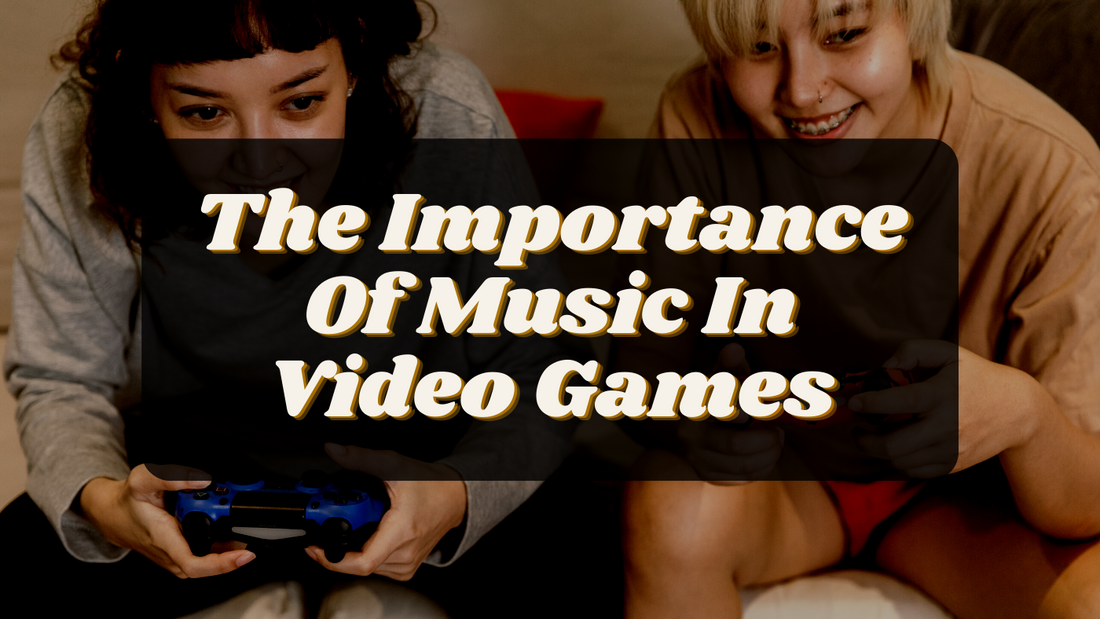In case you haven't noticed, video games are a big deal. The industry has been growing rapidly over the past few years, and it's now bigger than Hollywood — but what does that mean for music?
Music is a key part of how we experience games.
Music is a key part of how we experience games. More specifically, music can be a key part of creating a game. It's an important tool in the development process, but it also plays an important role in how we experience our favorite titles.
It's no secret that music can be used to help create a mood or increase the intensity of a scene—it can even be used to create memorable moments for us as gamers.
Games are immersive, and the music helps bring you into the world.
You’ve probably heard a lot of people say that games are immersive, and the music helps bring you into the world.
This is especially true when it comes to RPGs (Role Playing Games). The music in video games can help create a sense of place, establish mood and atmosphere, get you into character, or just make you feel like part of the story is happening around you. For example: One game where I felt this way was Final Fantasy VII on PS1. The entire game takes place in Midgar (the city above ground), but there are also moments when you go down below ground to fight Sephiroth and save Aeris. The music helps convey these different settings by changing from fast paced techno beats when fighting monsters in Midgar to slow piano melodies when going down below ground; which makes sense considering they're two very different places!
Music can communicate meaning to players.
There is a lot of information to convey in a game. While the player may spend most of their time in combat, there are plenty of things happening outside of it that need to be communicated to them. For example, music can help them understand what's going on within and around the game world.
For instance, if there's an intense battle taking place and you hear heavy metal music playing in the background, it will be clear to you that something dangerous is happening. If that same battle takes place and you hear calming piano music playing instead (or no music at all), then it will be clear that this isn't as serious an event as before and might not pose much risk to your character or other characters in the area. This is just one example; countless others could be given where appropriate music helps players understand what's going on around them so they can make better decisions about how best to proceed through each situation
The sound in a game contributes to over all quality
So many games these days have great music, but what makes it so good? Sure, it can be used to set the tone and immerse players in their virtual world. But sometimes simpler is better—and that's where sound effects come in.
Sound effects are an important part of a game's overall quality; they help give life to characters and objects in the game through subtle details like footsteps, footsteps and environment interaction noises (such as getting hit by an enemy). Many games also use ambient noises for setting up an atmosphere (music isn't always necessary), such as wind blowing through trees or rain falling on leaves. The sounds that players hear during their journey can make them feel more connected with what's happening around them. For example: If there aren't any background noises while exploring outer space then it will probably feel lonely or empty because there wouldn't be anything else besides your own breathing which would seem unnatural if someone were actually living on another planet!
Music can also be used as a mood setter.
Music can also be used as a mood setter. A perfect example of this is in the beginning of Super Smash Bros., where you are introduced to the world of Nintendo characters fighting each other in a massive arena. The music sets up an expectation that something big and crazy is about to happen, which it does.
Music can set a mood in different ways, depending on what type of music you choose to use and how you implement it into your game. One way is through nostalgia: if your game takes place in an old-fashioned time period, then classic rock songs that are commonly associated with that era may work best for setting the mood. If your game has futuristic elements, then maybe techno-pop would fit better? It all depends on what kind of vibe you're going for!
Soundtracks and original music can create memorable moments and feelings in game.
There’s a reason why I don’t remember the plot of Halo: Combat Evolved that well: it was the music that kept me coming back. Whenever I hear those first notes of “One Final Effort,” all my memories of playing through the game flood back to me at once.
It’s not just nostalgia, though—the music really is affecting how we perceive our games. In one study, participants were asked to play two different versions of Pong, one with no sound and another with a simple 8-bit soundtrack added on top (a little like this). When asked which version they preferred afterward, most chose the version with music over silence because it had enhanced their experience so much.
The end
The music in video games is an essential part of the experience. It can help set up a mood, create meaning, and even communicate with players. As technology advances and writing becomes more sophisticated, the importance of soundtracks will only continue to grow as well.
Looking to relive some of your favorite video game moments on vinyl? View our Video Game Soundtracks On Vinyl Collection.

